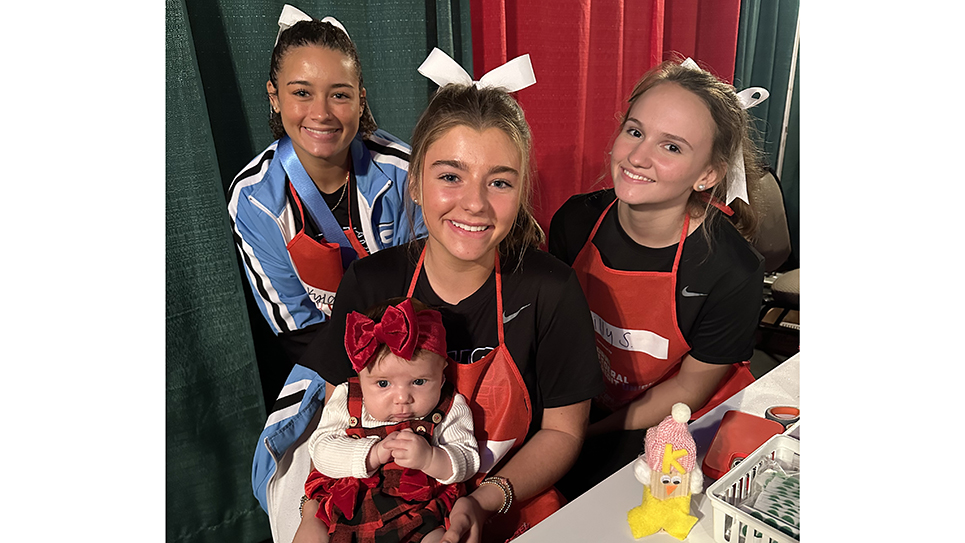By Steve Hunley, Publisher
publisher@knoxfocus.com
According to information obtained by The Knoxville Focus through a Freedom of Information Act request, on July 17th, from 2:00 p.m.-2:30 p.m. Knoxville Mayor Madeline Rogero met with Knoxville Councilwoman Brenda Palmer. She also met with Knoxville Councilman George Wallace on August 21st, from 8:00 a.m. – 9:00 a.m. Details regarding the meetings or what was discussed therein were not provided.
After searching extensively online and speaking with several council members it has been confirmed by The Focus to the best of our knowledge that Mayor Rogero does not, in fact, publicly notice individual meetings with council members.
Some maintain that she is not required to from the executive seat, in the same manner that Knox County Mayor Tim Burchett is not required to do so. However, unlike Mayor Burchett, Mayor Rogero presides over City Council meetings and may actually vote on agenda items in the event of a tie vote.
According to the City of Knoxville’s charter Article III, Section 303., Item (J): The mayor shall preside over all meetings of the council, but shall not have the right to vote, except in the event of a tie, [and] then the mayor shall have the right to cast the deciding vote upon the question then before the council.
Therefore, in our opinion, Mayor Rogero is a voting member of this body.
According to information obtained from the University of Tennessee Institute for Public Policy regarding the Open Meetings Act (commonly referred to as the Sunshine Law): “All meetings of any governing body are declared to be public meetings.” T.C.A. § 8-44-102.
“Meeting” is statutorily defined as “the convening of a governing body of a public body for which a quorum is required in order to make a decision or to deliberate toward a decision.” T.C.A. § 8-44-102(b)(2).
At first glance it might appear that the Mayor’s actions are consistent with the act, however, the information provided goes on to read: “Governing body” is defined in the statute as “any public body consisting of two (2) or more members, with the authority to make decisions for or recommendations to a public body on policy or administration.” T.C.A. § 8-44-102(b)(1).”
The information provided by the University goes on to explain: The Tennessee Supreme Court has held that the act was intended to apply to “any governmental board, commission, committee, agency or authority whose members have the authority to make policy or administrative decisions.” Dorrier v. Dark, 537 S.W.2d 888 (Tenn. 1976). In Dorrier, the Supreme Court created a two-part test for determining whether an organization is subject to the Sunshine Law: (1) whether its origin and authority may be traced to state, city or county legislative action, and (2) whether its members have authority to make decisions or recommendations on policy or administration affecting the conduct of the business of the people. The statute declares that a meeting occurs whenever a public body convenes for one of two purposes: to make a decision or to deliberate toward a decision. T.C.A. § 8-44-102(b)(2). Therefore, it is not necessary that a decision be reached before the Sunshine Law applies. “Two or more members of a governing body should not deliberate toward a decision or make a decision on public business without complying with the Open Meetings Act.” Op. Tenn. Atty. Gen. 88-169 (Sept. 19, 1988).
Whether or not actual deliberation occurred during these meetings between the Mayor and council members is irrelevant. Mayor Rogero’s presiding over and participation in the meetings without proper public notice violates the spirit of the Open Meetings Act and, at the very least, is not consistent with the “open and transparent government” she promised while campaigning.
As a tie-breaking voting member of city council she should comply with the policy of publicly noticing any and all meetings with council members.
Again, the big difference between the city mayor and the county mayor is that the county mayor does not preside over county commission meetings and cannot vote in any event with regard to county commission business. On the other hand, Rogero, as mayor, presides over all city council meetings and does have the authority to vote to break a tie, making her a voting member of the city council.
Stories in this Week's Focus
- The Knoxville Focus for December 22, 2025
- Publisher’s Positions
- Raborns find joy as the Clauses
- Congressman Robert A. ‘Fats’ Everett
- Gibbs’ cheer team really gives a lot this season
- Volunteers remember veterans with wreaths
- The Knoxville Focus for December 15, 2025
- Publisher’s Positions
- Knoxville Botanical Garden celebrates repairs to Howell Family Home
- Arch Moore of West Virginia






